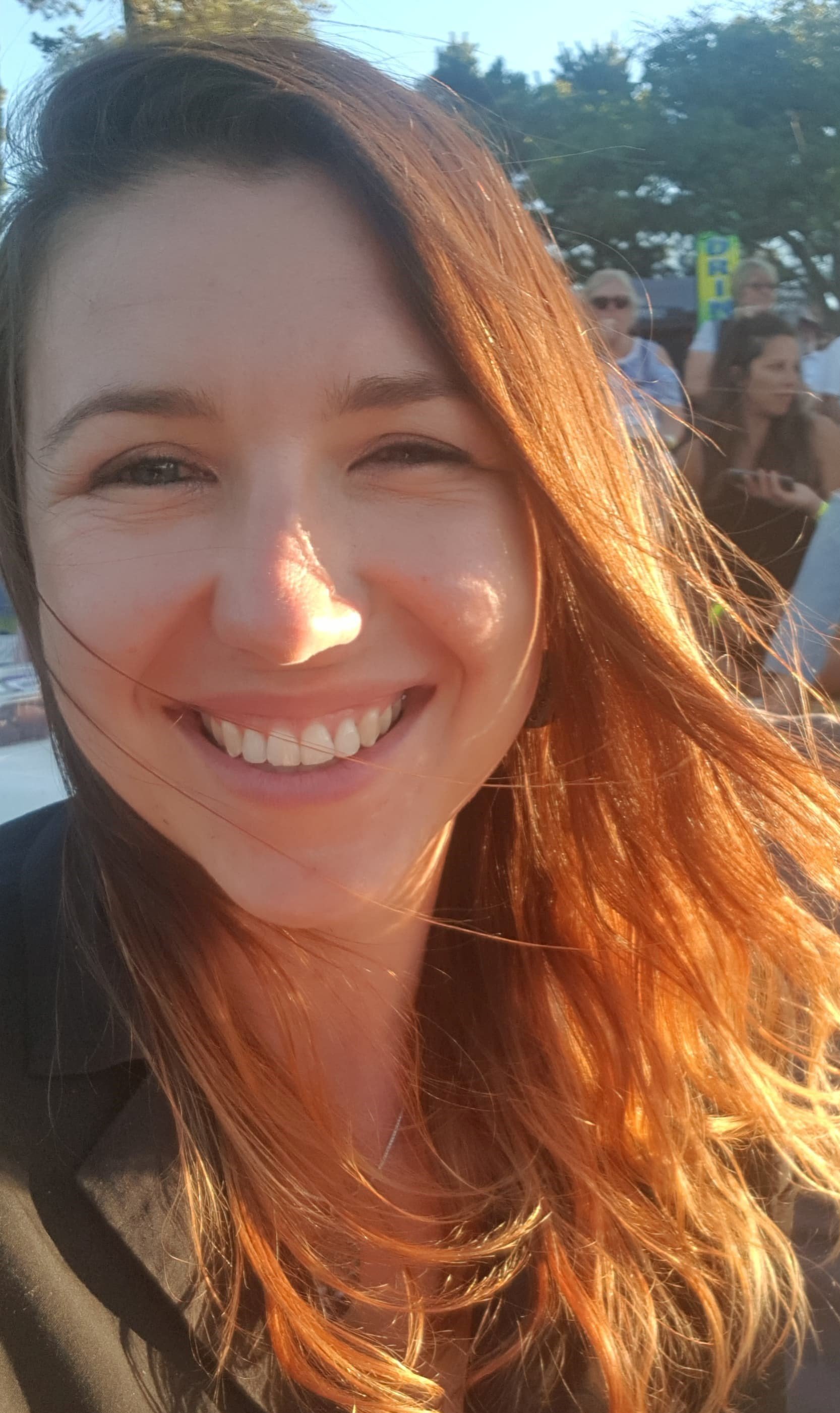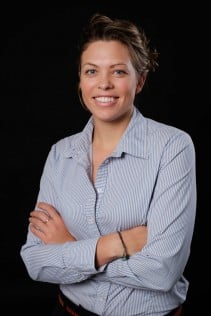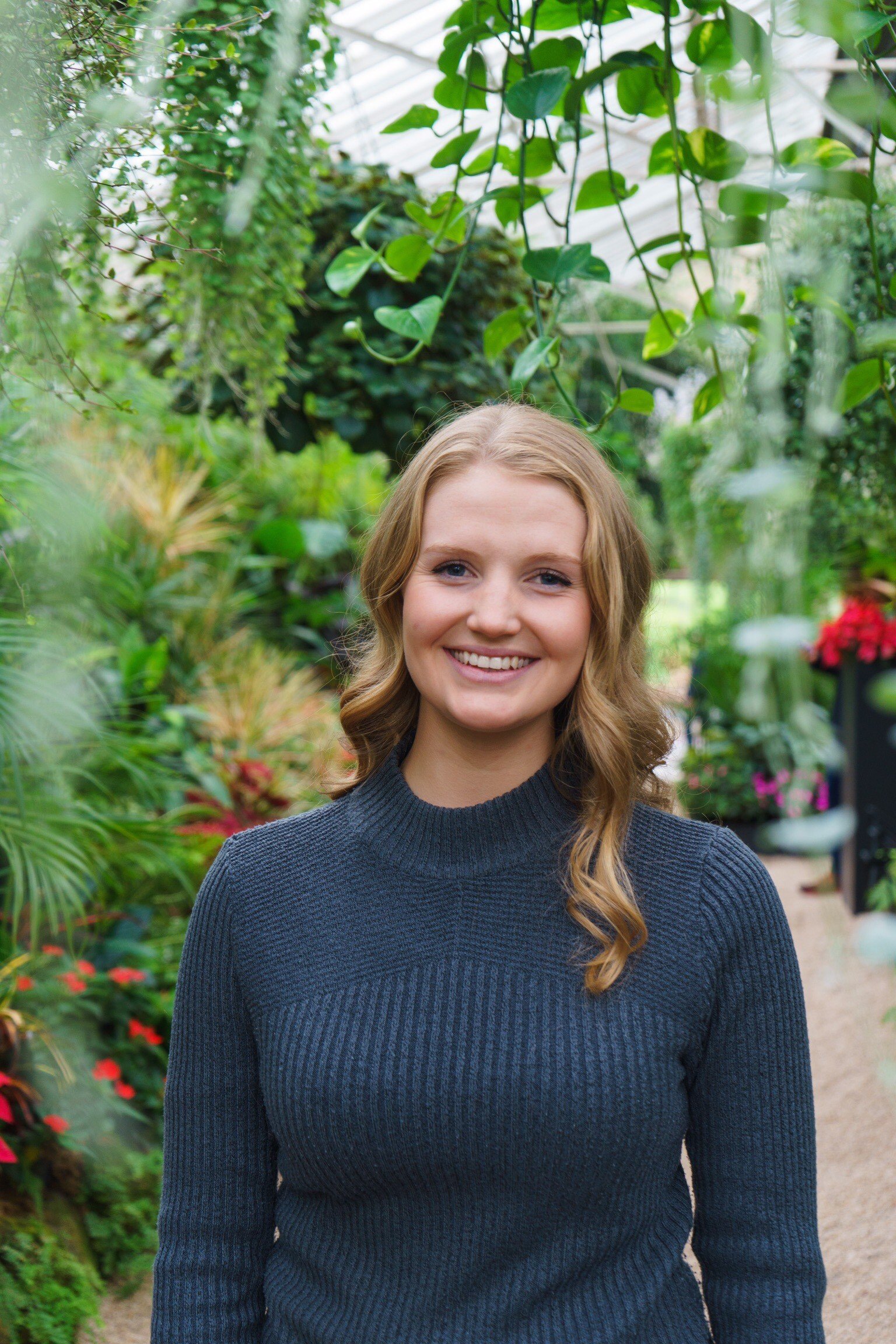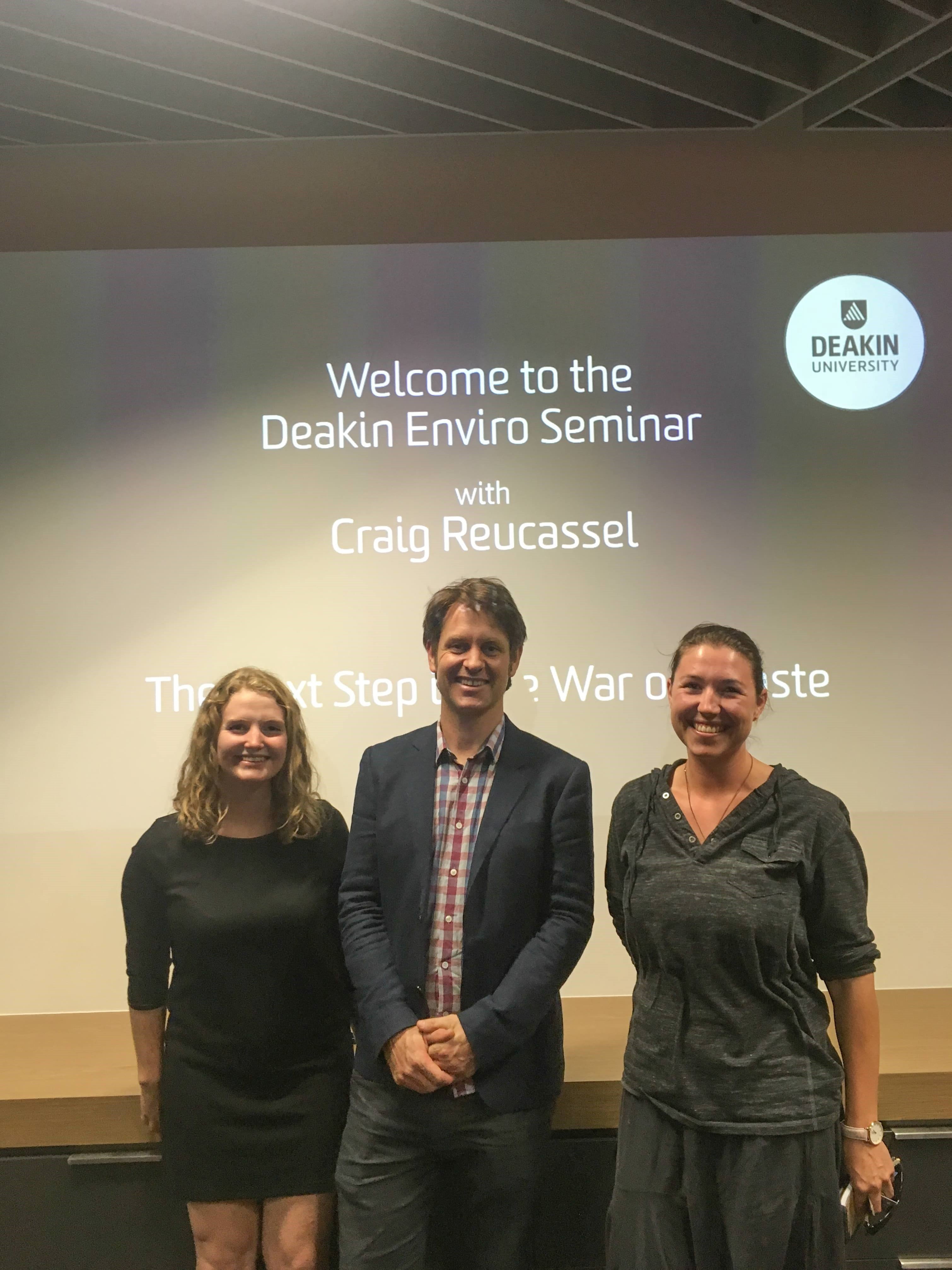Craig Reaucassel – ‘The face of sustainable waste’
May 5, 2019
Craig Reaucassal, from the ABC’s War on Waste, was invited to speak to current Deakin students and Alumni at Deakin’s Burwood campus on Monday 25th of March 2019. Three nutrition science students have been invited to share their perspectives on his talk and the fight against waste across Australia and the globe.
 |
 |
 |
|
Emily Goodwin is in her first year of the Bachelor of Nutrition Science, Majoring in Health Promotion. She hopes to work with the local and state government on projects that educate young people about health and sustainability.
|
Megan Arden has just commenced a Bachelor of Nutrition Science. She is keen to see where her degree leads her and what impacts she can make to food security and sustainability for a growing population. | Fran Lennard is in the final year of her Bachelor of Food and Nutrition Science degree and aspires to have a career in research. She is particularly keen to advance the field of food sustainability and consumer behaviour research. |
Which bin do I put this in? Is this recyclable? Is this bio-degradable? Let’s face it, dealing with waste and where to put it, is not clear cut. Product packaging, different council regulations and sometimes a voluntary system for recycling does not help the increasing confusion we are faced with.
A key crusader aiming to break through the misinformation is Craig Reaucassel, a South African-born, Australian-claimed, political science comedian, who is best known for his role on ABC’s ‘The Chaser’ and recent works ‘The War on Waste’. This fascinating series looks at how much waste Australia produces and more importantly, how we deal with it. The first episode focuses on the major problem of food waste. Craig explores cosmetic standards set for fruits and vegetables, how farmers manage this up stream and what can be done to reduce nearly 1 in 5 bags of groceries going to waste in Australian homes.

Source: Twitter, Craig’s twitter Feb 21.2017, 50,000 coffee cups in a Melbourne tram, to highlight how many cups are used across Australia every 30 minutes https://www.globalcitizen.org/en/content/a-tram-filled-with-50000-takeaway-coffee-cups-spot/
Invited to speak at Deakin’s annual Enviro Seminar (organised by the School of Life and Environmental Sciences), his presentation was a mix of witty political humour and undeniable facts, all illustrating the need for action and change on how we recycle.
Though throughout the last five years he has worked on waste, he has not seen any change or government implemented systems when it comes to stringent waste policy. He argues that the key to change is comprehensive government policies that look at how we as a country deal with our waste management streams. More legislation enforcing compulsory recyclable packaging, consistent council waste disposal systems and encouraging better technologies for sustainable energy sources are only the beginning.
To add to this, it appears moral and ethical boundaries have been side stepped by big corporations in preference for cost effective products, sales and growth with minimal consideration for long-term environmental impacts. The best example of this, are the perceived cosmetic factors influencing big chain supermarkets to reject, specifically bananas for being too big, too small and even too thick. Something they claim is consumer driven. Another example, fast fashion, the growing demand for mass produced items with little or no regard as to how the product will be dealt with long after its use has expired is one of the key issues Craig raised. With big businesses not being held more accountable for their roles and contribution to waste, how can we expect individual consumers to do the same?
It was mentioned that in Queensland, the reason systems are failing is because they are voluntary, the state government releasing a report stating “the heavy reliance of implementation through voluntary action plans, which did not eventuate, impeded the Strategies success”.
It appears a concise and easy-to-follow system would enable us to educate the greater population on how to use it. “A small change can have a massive impact”, Craig said, as he described the chaos that ensued after the compost, recycling and land-fill bins at a local high school moved a mere five metres apart, resulting in mass contamination, “…we’ve determined how far teenagers will walk to save the planet, less than 5 metres”.
The impact of our carelessness with waste and trends towards disposable convenience is already obvious, with stories reporting kilograms of plastic being found inside the carcasses of washed-up sea animals. More recently, Malaysia, China and Thailand have backed away from waste agreements with Australia, meaning we have no way of properly processing the volume of waste produced by households.
The government recently stated that “100% of packaging will be recyclable, compostable or reusable by 2025” a great initiative and idea, if it is followed through. This will be the first step in making large corporations accountable for the waste they produce, hopefully influencing other key components of the food system.
Craig made it clear that this is everybody’s problem and we can start small. We can start petitioning local councils for better waste management streams, waste collection points and different avenues for those products that he states are merely ‘rented’ by their lack of longevity and miniscule prices.
A packed crowd and an engaged audience left Craig’s presentation talking. Talking about how our actions can affect change and how we can create more change and continue this movement. As nutrition students we were particularly interested in the conversation around food waste and food packaging. We are inspired by Craig and his ‘War on Waste’, and are motivated to push for a healthy and sustainable food system.
We highly encourage those who have not seen it, to watch Craig’s, ‘The War on Waste’. As well as giving you facts and ways to make small changes, it allows you to really get a visual and a better understanding on how we consume and deal with waste, including food and food-packaging waste, in Australia.
